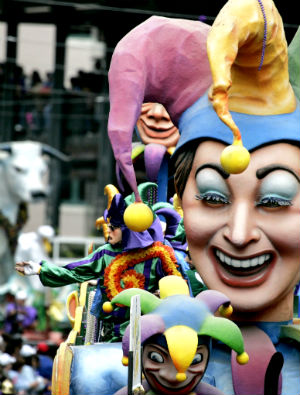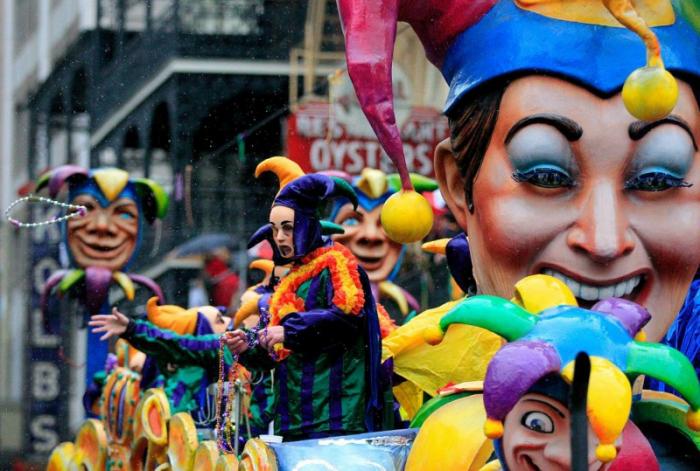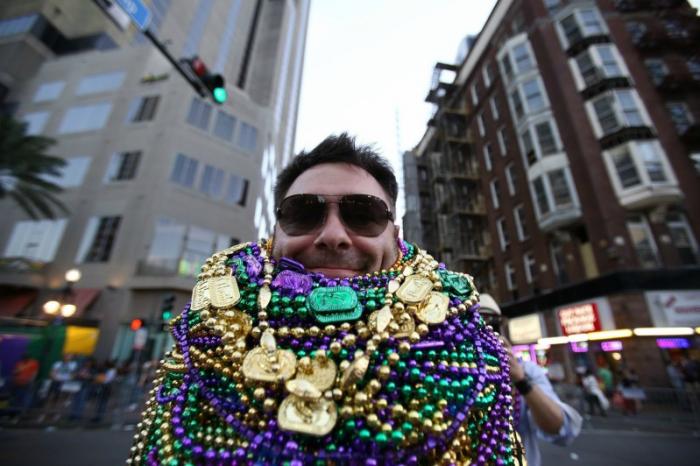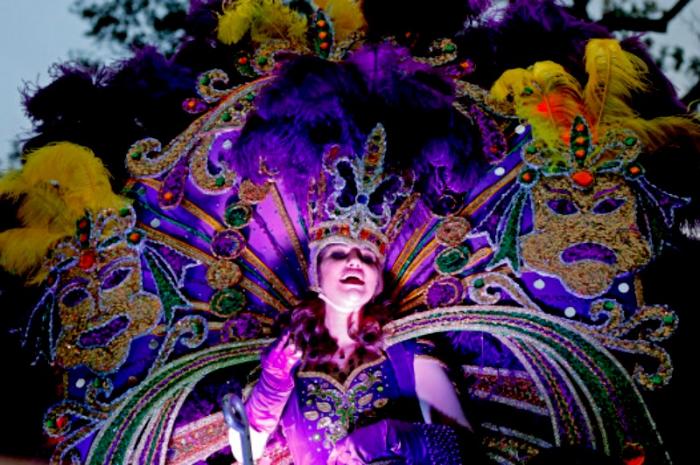We ask you, urgently: don't scroll past this
Dear readers, Catholic Online was de-platformed by Shopify for our pro-life beliefs. They shut down our Catholic Online, Catholic Online School, Prayer Candles, and Catholic Online Learning Resources essential faith tools serving over 1.4 million students and millions of families worldwide. Our founders, now in their 70's, just gave their entire life savings to protect this mission. But fewer than 2% of readers donate. If everyone gave just $5, the cost of a coffee, we could rebuild stronger and keep Catholic education free for all. Stand with us in faith. Thank you.Help Now >
Why is New Orleans the Mardi Gras hub of the world?
FREE Catholic Classes
Mardi Gras, or Fat Tuesday, is a time of celebration! Gold, green and purple masks, beads, floats, costumes and even food mark the occasion. Every year, the greatest Mardi Gras celebration in the United States can be found in New Orleans - but how did the Louisiana city gain its fame and why is it Mardi Gras central?

How did New Orleans become Mardi Gras central?
Highlights
CALIFORNIA NETWORK (https://www.youtube.com/c/californianetwork)
2/28/2017 (8 years ago)
Published in U.S.
Keywords: Mardi Gras, Catholic, New Orleans, parade, Fat Tuesday
LOS ANGELES, CA (Catholic Online) - New Orleans is known for two major reasons: It's delicious food and the amazing Mardi Gras celebrations.
Back in 1699, Pierre Le Moyne d'Iberville and his band of French-Canadian explorers founded "Point du Mardi Gras" approximately 60 miles from modern-day New Orleans.
New Orleans was founded nearly 20 years later.
Arthur Hardy, author of "Mardi Gras Guide," told TIME Carnival, another name for Mardi Gras, was first celebrated in Mobile, AL - but the excitement and greater parties came to New Orleans.
"Sometimes I jokingly say '[Mobile] had it first, but [New Orleans] told them where to put it. The men who started the first Mardi Gras organization in New Orleans were from Mobile, and they actually borrowed [traditions from] Mobile's Mardi Gas-style parade."

Colorful floats, elaborate costumes and beads are present at every Mardi Gras celebration.
The main difference between the two? Hardy claims Mobile's parades initially had nothing to do with Mardi Gras. They were simply New Year's Eve celebrations.
Later in the 18th century, New Orleans became a prominent port city with many strong Catholic families. Fat Tuesday celebrations spread and soon elaborate galas were held.
Those who attended the parties wore masks to hide their identities, allowing them to celebrate without concern for their reputation.

People celebrate Mardi Gras in several ways.
When the Spanish came into power and the Louisiana purchase came to pass, there was a temporary Mardi Gras ban until New Orleans residents fought for the reinstatement of galas in 1823.
The parades we recognize today began nearly 50 years later, when non-profit secret societies began to orchestrate parades. These groups began the tradition of presenting themed floats during the public parades, which was extremely popular and put New Orleans on the map as a festival venue.
Hardy explained the parades are "like a six-mile family picnic. Anybody can go, and it's a remarkably safe and wholesome event.

Mardi Gras.
"You don't watch Mardi Gras parades, you're a part of it. There's very few entertainment venues where they give you a free show and free gifts to take home with you after."
In the past 16 years, Mardi Gras parades have only been cancelled 13 times - primarily due to Civil, Korean and World wars. After Hurricane Katrina, many worried the parade would be canceled but officials allowed it, boosting the city's morale.
Mark Roming, the President of the New Orleans Tourism Marketing Corporation and IPA announce for the city's NFL team, explained: "People thought that there was no way the city would be able to embrace its culture and tradition after Katrina, but Mardi Gras proved to the country that [New Orleans] would come back.
"That's the magic of Mardi-Gras - it's a gumbo. And they don't water it down. They add richness."
Louisiana is the only U.S. state to declare Mardi Gras a legal holiday and Hardy said New Orleans celebrates 35 distinct parades, 50 if the outskirt towns are included. If you're near New Orleans for Mardi Gras, grab a mask, eat some King Cake and go with the flow!
---
The California Network is the Next Wave in delivery of information and entertainment on pop culture, social trends, lifestyle, entertainment, news, politics and economics. We are hyper-focused on one audience, YOU, the connected generation. JOIN US AS WE REDEFINE AND REVOLUTIONIZE THE EVER-CHANGING MEDIA LANDSCAPE.
Join the Movement
When you sign up below, you don't just join an email list - you're joining an entire movement for Free world class Catholic education.
Our Important Lenten Message - Please Watch
- Easter / Lent
- 5 Lenten Prayers
- Ash Wednesday
- 7 Morning Prayers
- Mysteries of the Rosary
- Litany of the Bl. Virgin Mary
- Popular Saints
- Popular Prayers
- Female Saints
- Saint Feast Days by Month
- Stations of the Cross
- St. Francis of Assisi
- St. Michael the Archangel
- The Apostles' Creed
- Unfailing Prayer to St. Anthony
- Pray the Rosary
![]()
Copyright 2026 Catholic Online. All materials contained on this site, whether written, audible or visual are the exclusive property of Catholic Online and are protected under U.S. and International copyright laws, © Copyright 2026 Catholic Online. Any unauthorized use, without prior written consent of Catholic Online is strictly forbidden and prohibited.
Catholic Online is a Project of Your Catholic Voice Foundation, a Not-for-Profit Corporation. Your Catholic Voice Foundation has been granted a recognition of tax exemption under Section 501(c)(3) of the Internal Revenue Code. Federal Tax Identification Number: 81-0596847. Your gift is tax-deductible as allowed by law.








